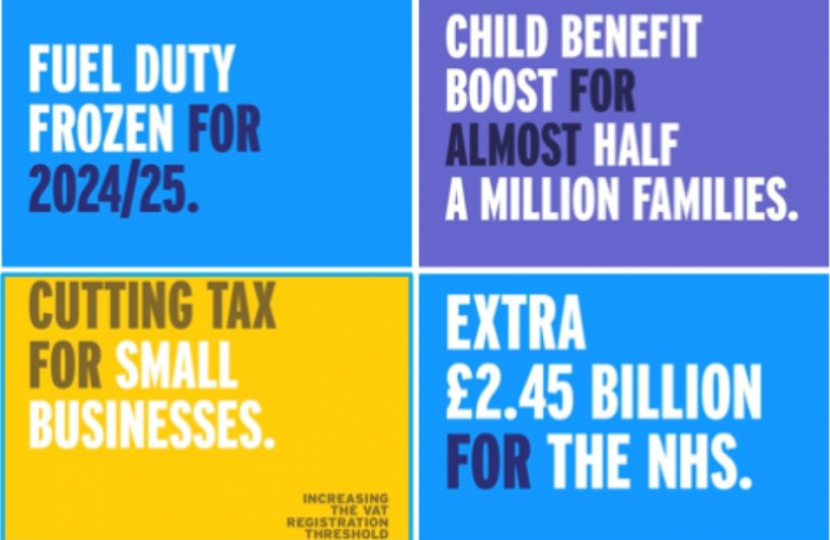
Over the last year progress has been made in addressing the issues hitting the pockets of people in Crawley.
While inflation is falling from 11.1 per cent to 4 per cent, and with the economy performing better than expected and wages rising, the job is by no means done.
What needs to happen now is to ensure the economy turning the corner means a boost for the people of this country.
An issue which a number of Crawley parents have highlighted with me over recent years is the High Income Child Benefit Charge.
The Chancellor of the Exchequer confirmed at the Budget last week that the threshold for the High Income Child Benefit Charge will be increased from £50,000 to £60,000, with additional action including halving the rate so that it is not paid in full until earnings exceed £80,000. These measures are estimated to support some half a million families with an average gain of up to £1,260 towards the costs of raising their children.
The Charge will also be changed by moving towards a household system. At present, two parents earning £49,000 a year receive full Child Benefit, but a household with a single earner on just £50,000 starts losing it. The Chancellor confirmed Government will consult on moving the High Income Child Benefit Charge to a household-based system to be introduced by April 2026.
The Household Support Fund has been extended for a further six months to September 2024, to ensure further support for cost of living pressures.
The extension of the freeze on alcohol duty will support Britain’s 38,000 pubs. Keeping the 5 pence cut to fuel duty in place freezes rates for the 14th consecutive year, helping keep costs for motorists down.
By cutting National Insurance Contributions (NICs) further the tax system will be fairer for working people.
The Chancellor confirmed that the main rate of employee NICs will be cut to 8 per cent, meaning a National Insurance tax cut worth more than £900 a year for the average worker on £35,400.
In 2010, the effective personal tax rate for an average full-time employee was 23.6 per cent. As a result of cuts to NICs, this rate will fall to 19.6 per cent by the end of the forecast in 2028-29.
Indeed, the Government’s changes will see the average earner have the lowest effective personal tax rate since 1975: lower than in any G7 country.
We must always strive to do more. In the House of Commons it is clear which side of the green benches is resolute on reducing the burden on working people. Securing this is a cause I will continue to pursue throughout the rest of my time in Parliament.
Henry Smith MP

